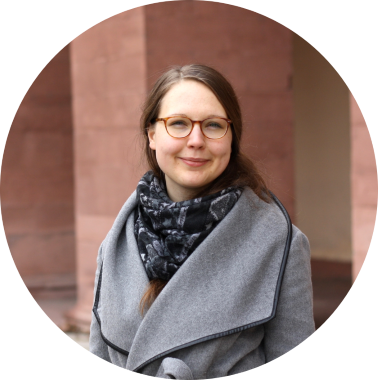WELCOME!
I am an Assistant Professor in the Department of Economics at the University of Vienna. Prior to that, I did my PhD in Economics at the University of Mannheim. I am an applied microeconomist, using quasi-experimental methods to study policy-relevant questions in environmental and labor economics.
I am a co-organizer of the Vienna Applied Micro Economics Network.
Find my CV here or send me an email: beate[dot]thies[at]univie.ac.at.
WORKING PAPERS
Air Quality, Knowledge Worker Performance and Adaptation: Evidence from GitHub (with Felix Holub)
[Abstract | Paper | Podcast]
Highly skilled knowledge workers are important drivers of innovation and long-run growth. We study how air quality affects productivity and work patterns among these workers, using data from GitHub, the world's largest coding platform. We combine panel data on daily output, working hours, and task choices for a sample of 27,000 software developers across four continents during the period 2014-2019 with information on concentrations of fine particulate matter (PM2.5). An increase in air pollution reduces output, measured by the number of total actions performed on GitHub per day, and induces developers to adapt by working on easier tasks and by ending work activity earlier. To compensate, they work more on weekends following high-pollution days, which suggests adverse impacts on their work-life-balance. The decline in output arises even at concentrations in line with current regulatory standards in the EU and US. Exposure to unusually high PM2.5 levels relative to the city-by-season-by-day-of-week specific mean reduces daily output quantity by 4%, which translates into a loss in output value by approximately $8 per developer.
Prenatal Exposure to Air Pollution and the Development of Socio-Emotional Skills (Revise and Resubmit, JAERE)
[Abstract | Paper]
Socio-emotional skills are important predictors for life outcomes like education, health and earnings. This paper provides causal evidence on the effect of in-utero exposure to air pollution on socio-emotional ability in childhood. Using thermal inversions to address endogeneity in pollution exposure and data from a representative household survey in Germany, I find that an increase in fine particulate matter concentration by 1 μg/m3 during the prenatal period increases neuroticism and internalizing behavior at age 5-10 by 13% and 18% of a standard deviation, respectively. This implies that affected children are less emotionally stable and suggests adverse impacts on mental health. The effects on emotional stability are more pronounced than impacts on measures of cognitive ability. Back-of-the-envelope computations indicate that a standard deviation increase in air pollution reduces adult earnings by 0.23%-0.74% through its impact on socio-emotional ability. These results provide a better understanding of how in-utero exposure to air pollution generates adverse long-run effects and what type of interventions might be effective in mitigating them.
WORK IN PROGRESS
Productivity Spillovers in International Teams: Insights from GitHub Activity Data (with Felix Holub and Ingo Isphording)
[Abstract]
Identifying productivity spillovers – peer effects – among high-skilled knowledge workers is notoriously difficult, due to lack of measurement of immediate effort and productivity, selective peer formation and simultaneity issues. Based on time-stamped GitHub activity from professional software developers contributing to collaborative projects, we identify endogenous peer effects in knowledge worker productivity through exogenous productivity shocks to varying shares of co-workers. Transitions into Daylight Saving Time (DST) by North-American co-workers lead to sizable reductions in productivity, measurable in quantity and quality of actions. These productivity shocks spill over to non-affected co-workers, indicating strong complementarities in software production. The spillovers are not uniform but driven by more experienced collaborators, particularly those in managerial or reviewer roles, and primarily borne by inexperienced focal developers.
Teleworking and the Environment (with Omar Bamieh and Lennart Ziegler)
The Effect of Takeovers on Knowledge Worker Productivity (with Andras Danis and Evgeny Gushchin)
RESEARCH FIELDS
Environmental Economics
Labor Economics



